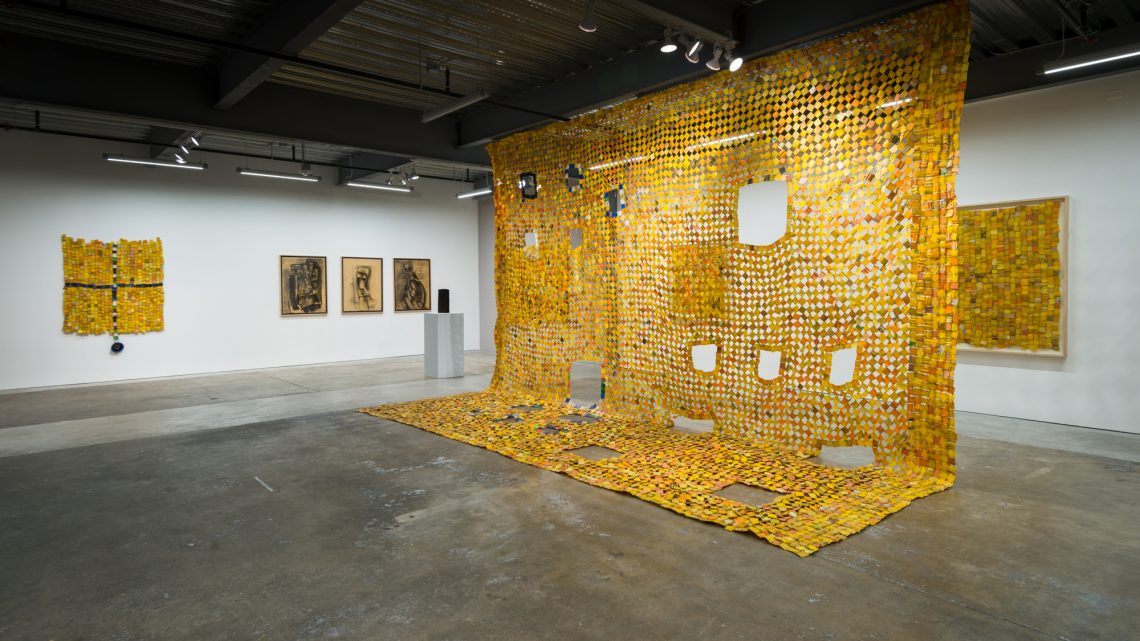Serge Attukwei Clottey
ADESA WE
January 11 – February 29, 2020
Opening Reception: January 11, 5-8 pm
Ever Gold [Projects] presents ADESA WE, Serge Attukwei Clottey’s third solo exhibition with the gallery. Clottey is a Ghanaian artist who has cultivated an international following while living and working in the country’s capital city, Accra. The exhibition’s title translates to “storytelling home,” referencing the narrative quality of the artist’s work; Clottey weaves together stories of past and present, examining current political, social, and environmental issues alongside his ancestral migration and other family histories. For the exhibition at Ever Gold [Projects], Clottey presents new large-scale mixed media wall works, charcoal drawings, and sculptures in wood and bronze. In his practice, Clottey asserts a deep connection to the traditions of Ghanaian culture while navigating the at times complex relationship to the Western canon and aesthetics. Clottey’s work is often concerned with cultural and material exchange between Africa and the West, and many of his sculptures feature a particular kind of imported plastic which Clottey and his studio remove from circulation and the local waste stream through their work.
The plastic Clottey uses in many of his wall-hanging sculptures is cut from water containers known as Kufuor gallons named after former Ghanaian president John Kufuor, who created distribution centers for water during a devastating drought in the early 2000s. People would wait in long lines to fill these containers, transporting them home for use or elsewhere for resale. Often bright yellow in color, these gallons may bear different identifying marks indicating the carrier’s language, religion, or political beliefs. Recent years have brought a number of large-scale water expansion projects to Ghana, and the country now has the highest percentage of access to potable water in Western Africa. Despite these changes, the Kufuor gallons are still found in use as storage for cooking oil and water. Clottey, among others, believes they were not particularly safe vessels for drinking water to begin with and seeks to raise awareness about their potential to leach harmful chemicals into their contents, as well as their cumulative environmental effects—The Displaced, a 2016 film by the artist viewable online, demonstrates the sheer volume of plastics present in the country’s coastal waters. Clottey’s studio collects and buys Kufuor gallons back from members of the local community, removing them from use. They are cut into rough squares and wired together into wall-hanging sculptures with copper, a valuable commodity in the Ghanaian market and another source of environmental degradation. Mining operations by foreign companies extracting copper and other materials have caused water pollution, damage to forested areas and wildlife habitats, and various threats to human health.
Some of Clottey’s plastic and copper works are large enough to cover a building facade, as seen in recent installations at Facebook in Menlo Park and the Vestfossen Kunstlaboratorium in Norway. Reconfiguring this polluting material as a valuable cultural commodity, Clottey quite literally gives a second life to the remnants of Western help-gone-awry. In sculptures and performances, Clottey isolates the tops of the containers to produce a mask-like form that he inserts in place of traditional (and famously appropriated) African masks, referring to the form as a “mask for our time.”
These mask-like forms also appear in Clottey’s charcoal drawings, which play on the history of cultural exchange between Africa and the West, and in particular Picasso’s African Period. Clottey’s visual language, strongly rooted in Ghanaian traditions, navigates this cultural relationship by utilizing traditional formats, materials, and subjects as vehicles to deliver distinctly contemporary ideas, and reclaiming aesthetic terrain through clear assertions of art historical awareness. It is notable that contemporary African artists are increasingly fostering their own creative communities, and as a result, becoming better able to navigate the global art world and market as a result of strong local networks and support systems. Much of Clottey’s practice is performative and public, involving and invigorating the local community. Clottey’s studio provides work for a group of collaborators known as GoLokal—approximately 100 people intermittently work alongside Clottey to produce artworks and performances, with the performances often functioning as political/environmentalist actions. Simultaneously embedded in his community and deeply engaged with the international art world, Clottey’s practice presents a powerful model for contemporary African artists living and working on the continent.
Please inquire for available works: info@nullevergoldprojects.com
Serge Attukwei Clottey (b. 1985, Accra, Ghana) works in a variety of media including performance, photography, video, painting, drawing, and sculpture. He attended the Ghanatta College of Art and Design in Ghana before studying at the Escola Guinard University of Art in Brazil and has completed multiple fellowships abroad. Clottey has had solo exhibitions at Ever Gold [Projects] (San Francisco, 2020, 2018, and 2016); The Mistake Room (Los Angeles, 2019); Lorenzelli Arte (Milan, 2019); Fabrica Gallery (Brighton, 2019); Jane Lombard Gallery (New York, 2018); Gallery 1957 at Lawrie Shabibi Gallery (Dubai, 2018); Gallery 1957 (Accra, 2016); GNYP Gallery (Berlin, 2016); and Feuer/Mesler (New York, 2015). Clottey has been included in group exhibitions at Vestfossen Kunstlaboratorium (Vestfossen, Norway, 2019); Ever Gold [Projects] (San Francisco, 2018 and 2019); Kampnagel Hamburg (Hamburg, 2015); The Mistake Room (Los Angeles, 2015); University Museum of Contemporary Art (Amherst, MA, 2014); and the Goethe-Institut Ghana (Accra, 2011). His work is in the permanent collections of the Nerman Museum of Contemporary Art (Overland Park, Kansas); the Museum of African Contemporary Art Al Maaden (Marrakech, Morocco); the Nubuke Foundation (Accra, Ghana); the Seth Dei Foundation (Accra, Ghana); Modern Forms (UK); and The World Bank Collection (Washington D.C.), as well as a number of international private collections. Clottey lives and works in Accra, Ghana.
Press:
The Art Newspaper: Private view: must-see gallery shows opening in January
Square Cylinder: Serge Attukwei Clottey @ Ever Gold
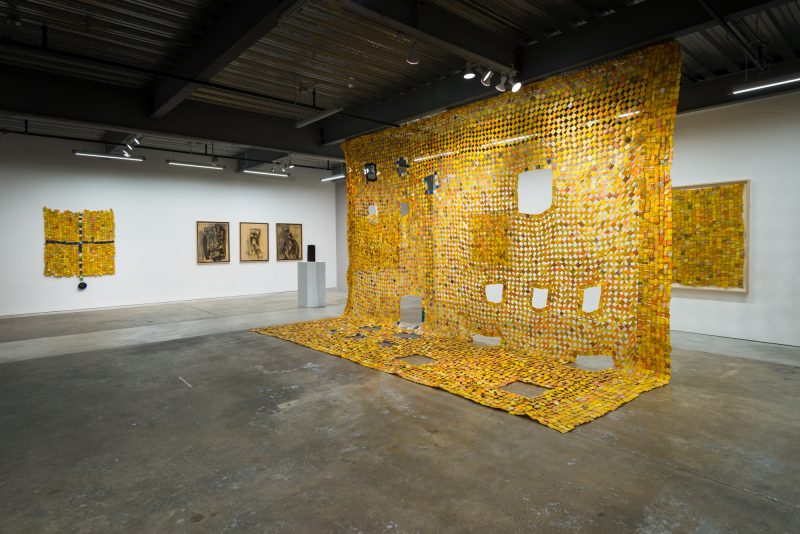
Installation view, ADESA WE, Serge Attukwei Clottey at Ever Gold [Projects], San Francisco, 2020.
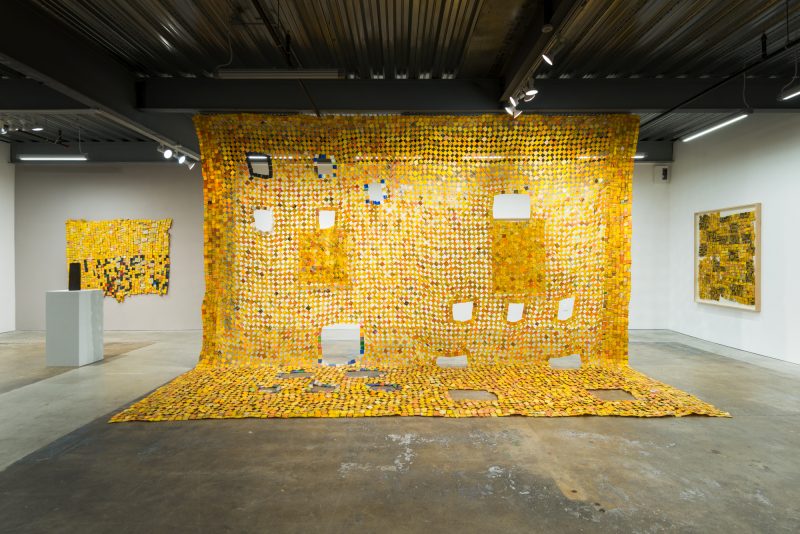
Installation view, ADESA WE, Serge Attukwei Clottey at Ever Gold [Projects], San Francisco, 2020.
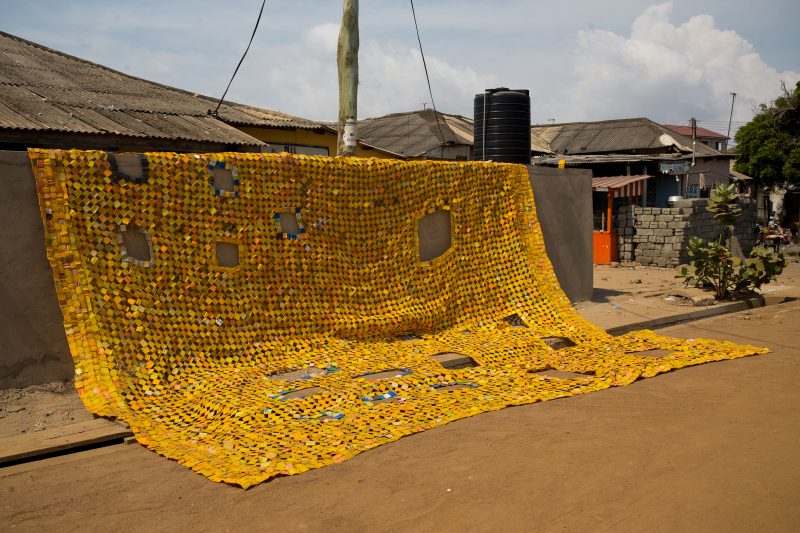
Act of kindness, 2019
Plastics and copper wires
192 x 264 inches
Installed at Serge Attukwei Clottey’s studio in Accra, Ghana.
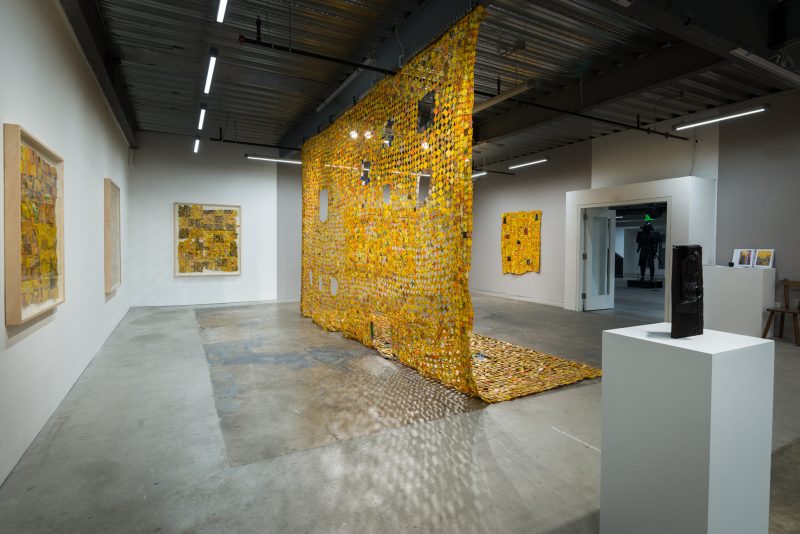
Installation view, ADESA WE, Serge Attukwei Clottey at Ever Gold [Projects], San Francisco, 2020.
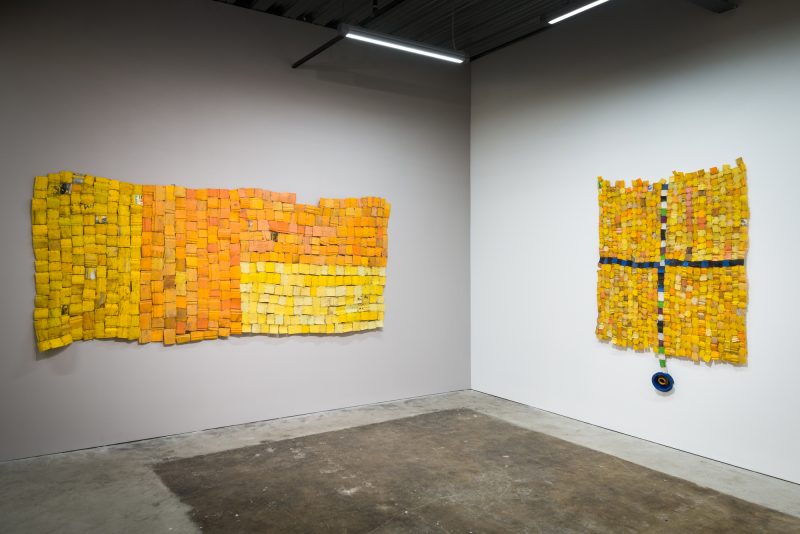
Installation view, ADESA WE, Serge Attukwei Clottey at Ever Gold [Projects], San Francisco, 2020.
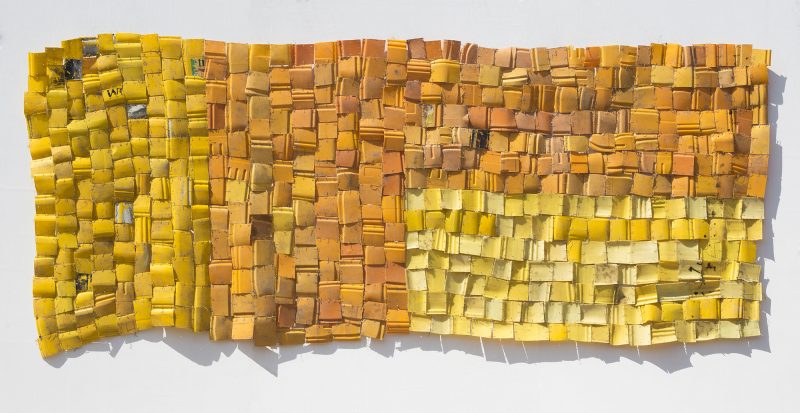
Chasing your dreams I, 2018
Plastics, wires, and oil paint
50 x 122 inches (127 x 310 cm)
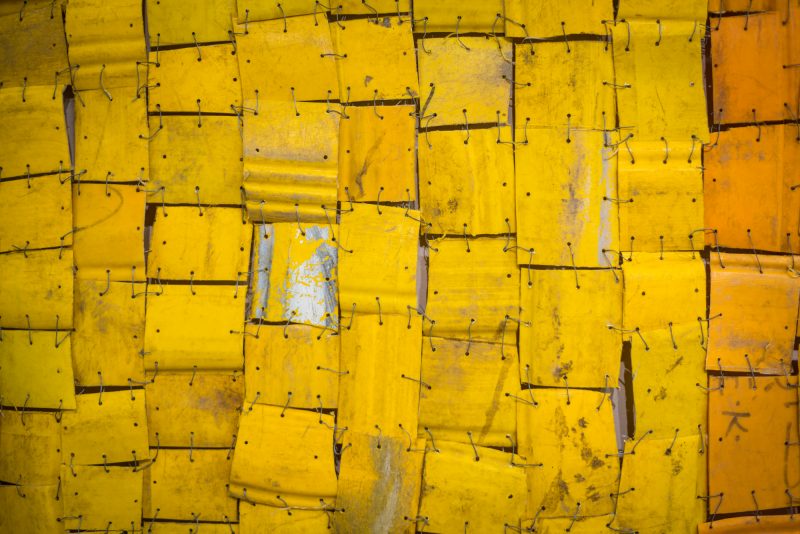
Chasing your dreams I (detail), 2018
Plastics, wires, and oil paint
50 x 122 inches (127 x 310 cm)
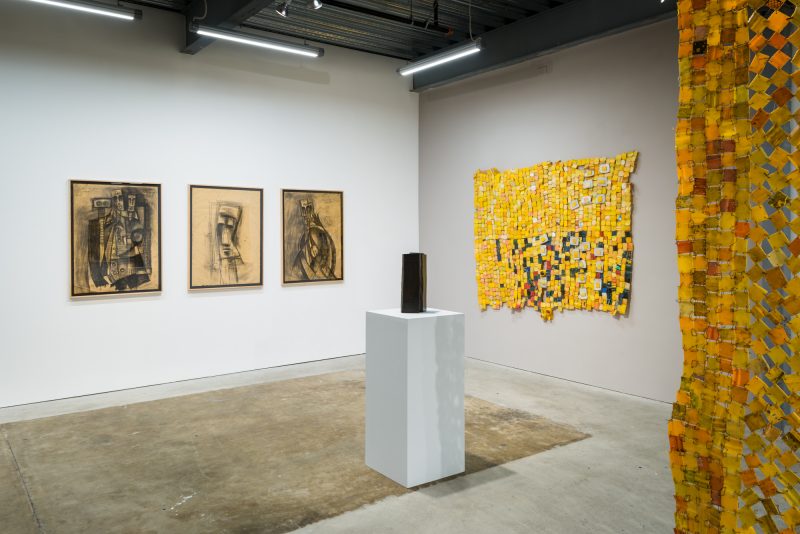
Installation view, ADESA WE, Serge Attukwei Clottey at Ever Gold [Projects], San Francisco, 2020.
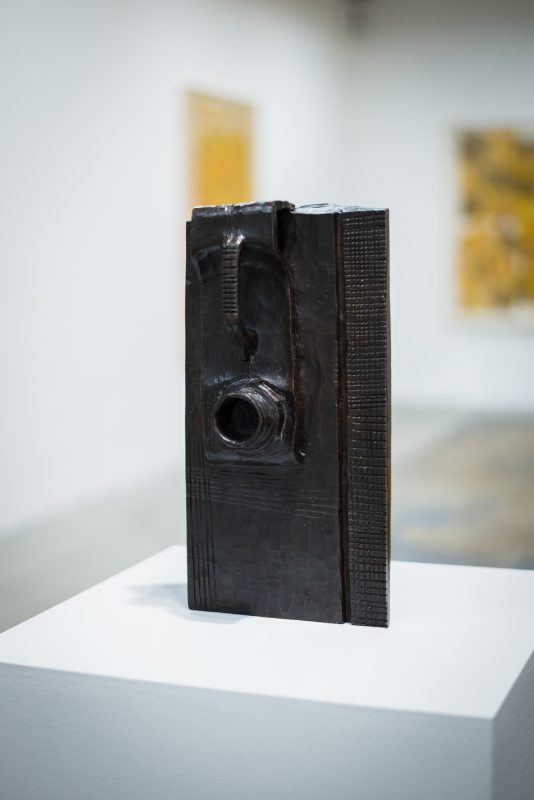
Afrogallonism Ebony Portraits Series, VII, 2019
Bronze
15 x 8 x 6 inches
3/3 + 2AP
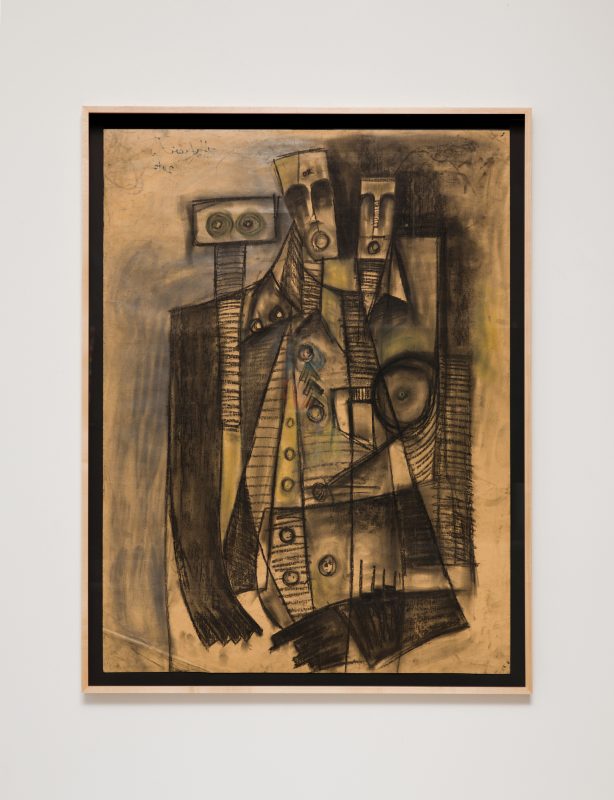
Expected Change, 2016
Charcoal on paper
40 x 30 inches (101.5 x 76 cm)
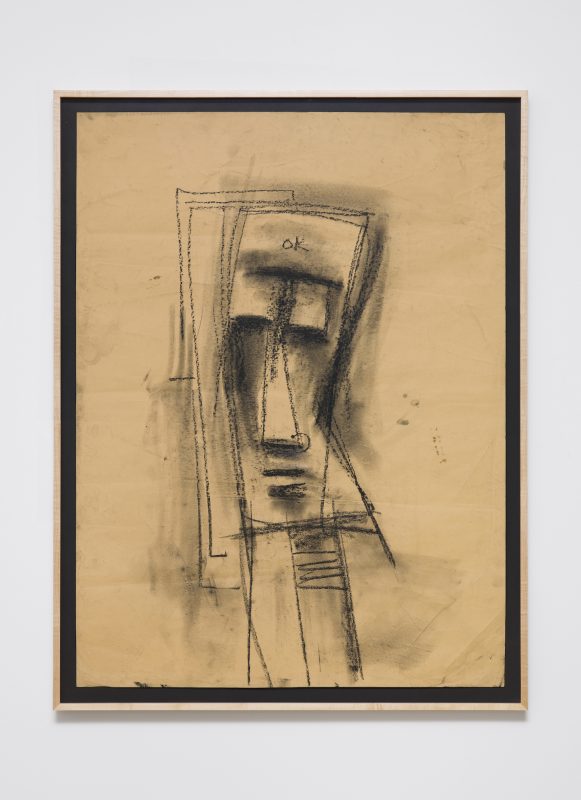
Mr Vulnerable, 2017
Charcoal on paper
40 x 30 inches (101.5 x 76 cm)
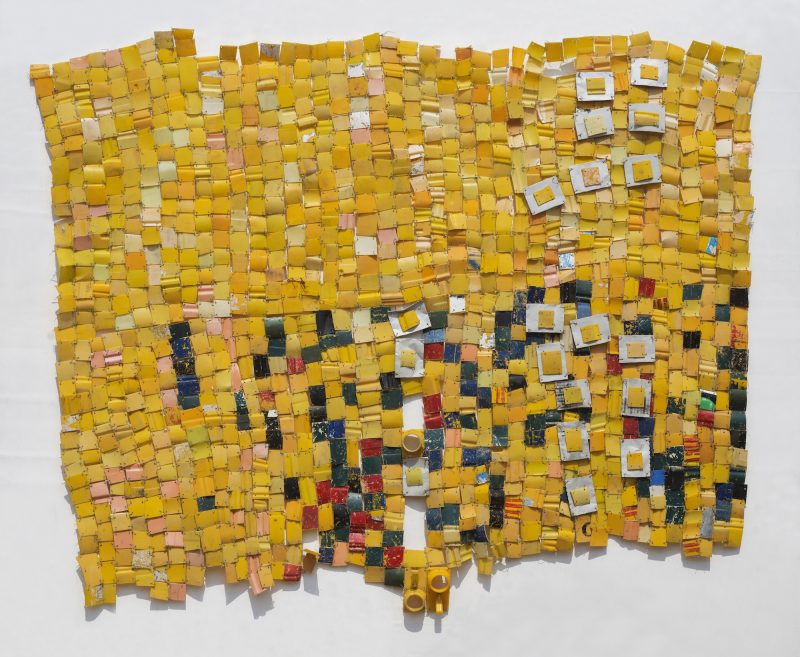
War garment, 2019
Plastics, steel, aluminium plate, oil paint, and copper wire
85 x 64 inches (216 x 162.5 cm)
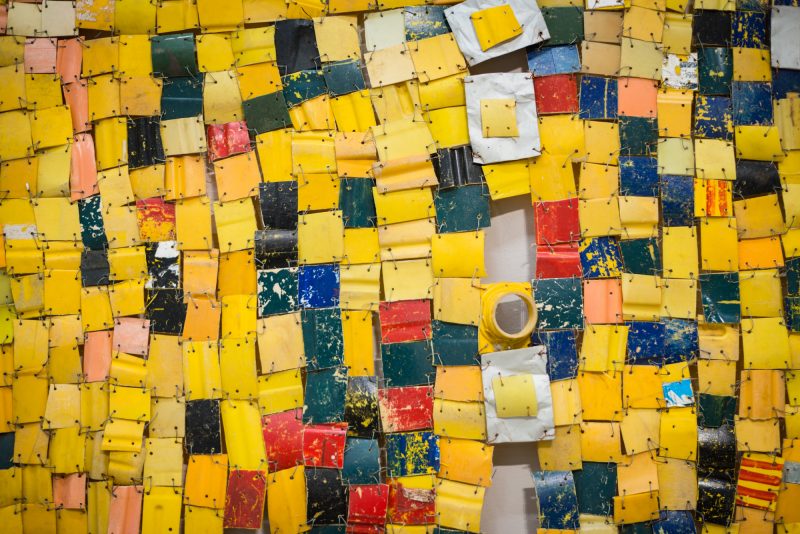
War garment (detail), 2019
Plastics, steel, aluminium plate, oil paint, and copper wire
85 x 64 inches (216 x 162.5 cm)
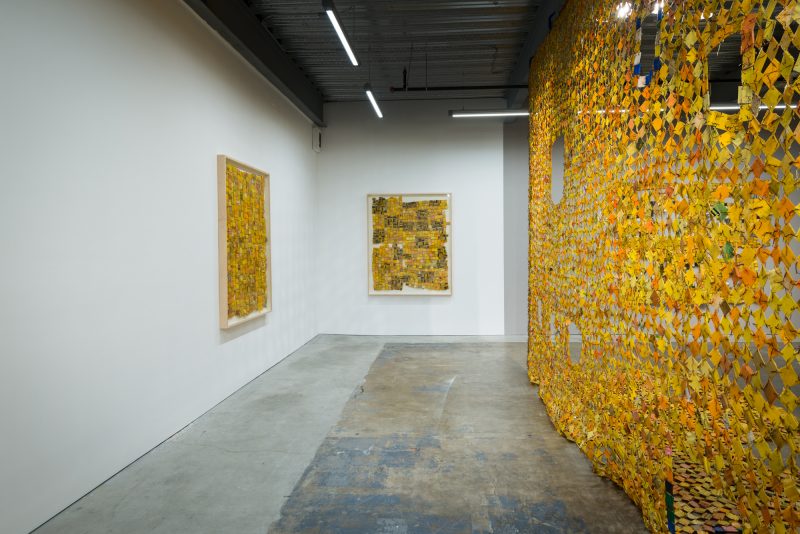
Installation view, ADESA WE, Serge Attukwei Clottey at Ever Gold [Projects], San Francisco, 2020.
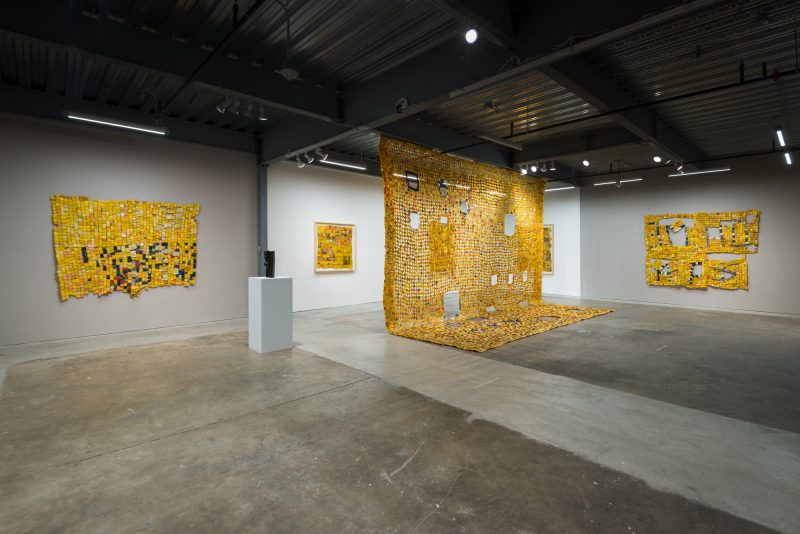
Installation view, ADESA WE, Serge Attukwei Clottey at Ever Gold [Projects], San Francisco, 2020.
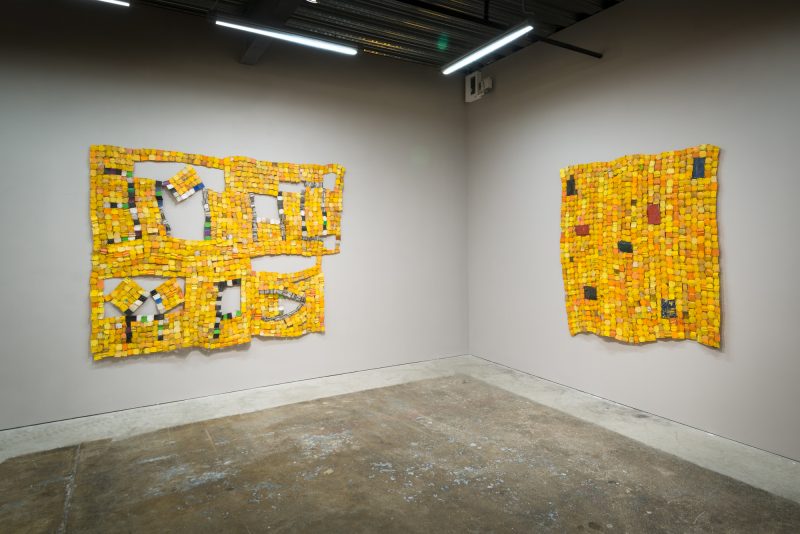
Installation view, ADESA WE, Serge Attukwei Clottey at Ever Gold [Projects], San Francisco, 2020.
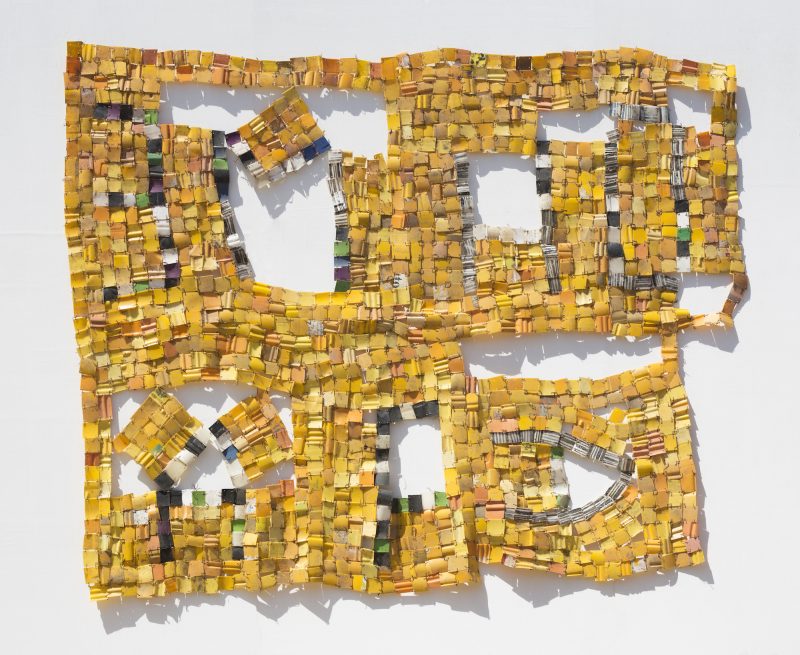
A passion for change, 2018
Plastics, wires, and oil paint
75 x 93 inches (190.5 x 236 cm)
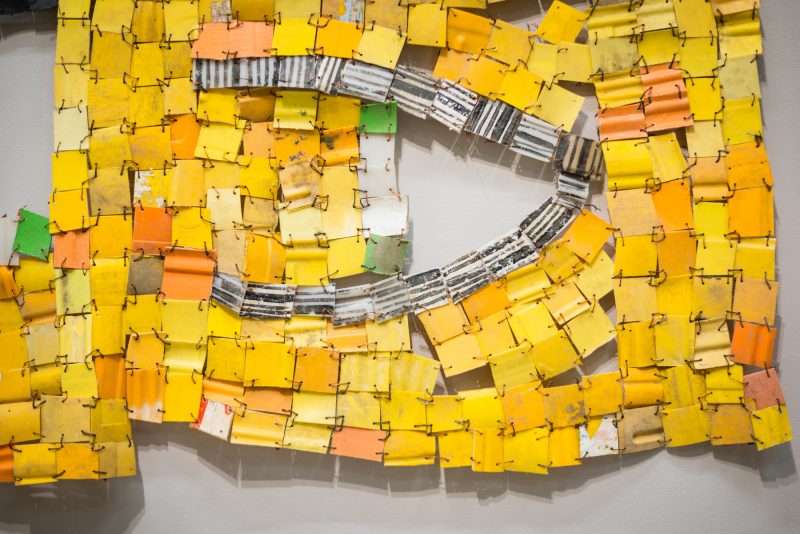
A passion for change (detail), 2018
Plastics, wires, and oil paint
75 x 93 inches (190.5 x 236 cm)
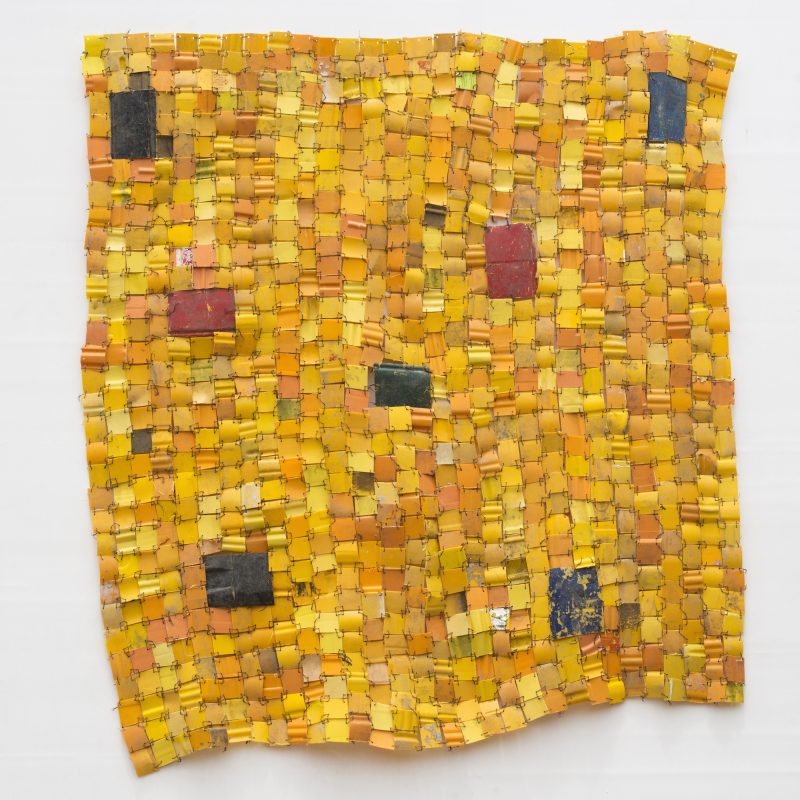
Heritage II, 2019
Plastic and copper wires
65 x 61 inches (165 x 155 cm)
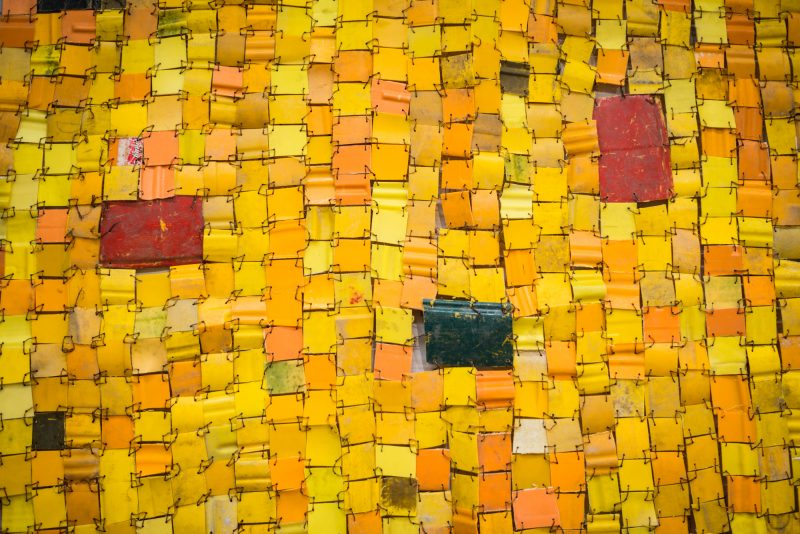
Heritage II (detail), 2019
Plastic and copper wires
65 x 61 inches (165 x 155 cm)
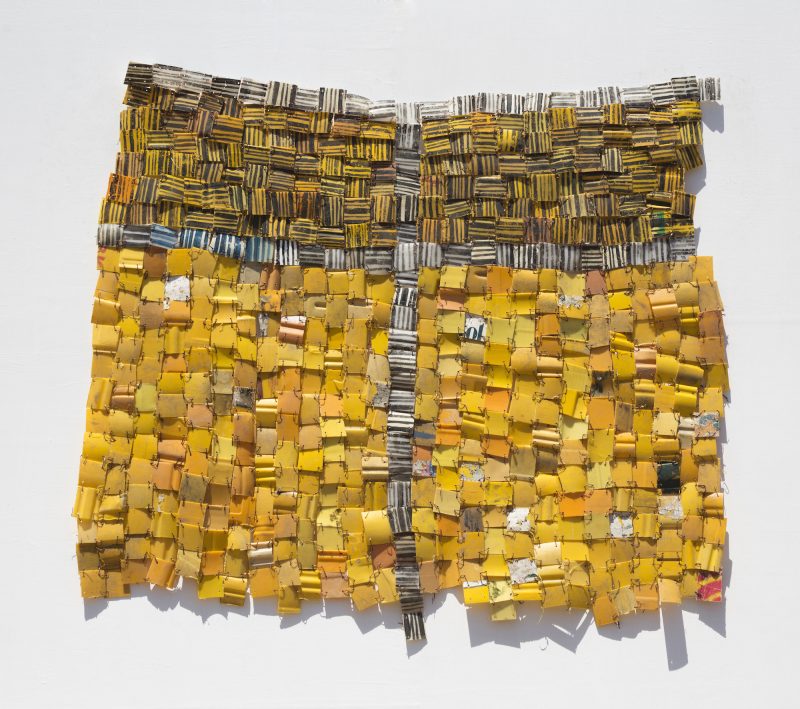
Awaken III, 2018
Plastics, wires, and oil paint
42 x 47 inches (107 x 119 cm)
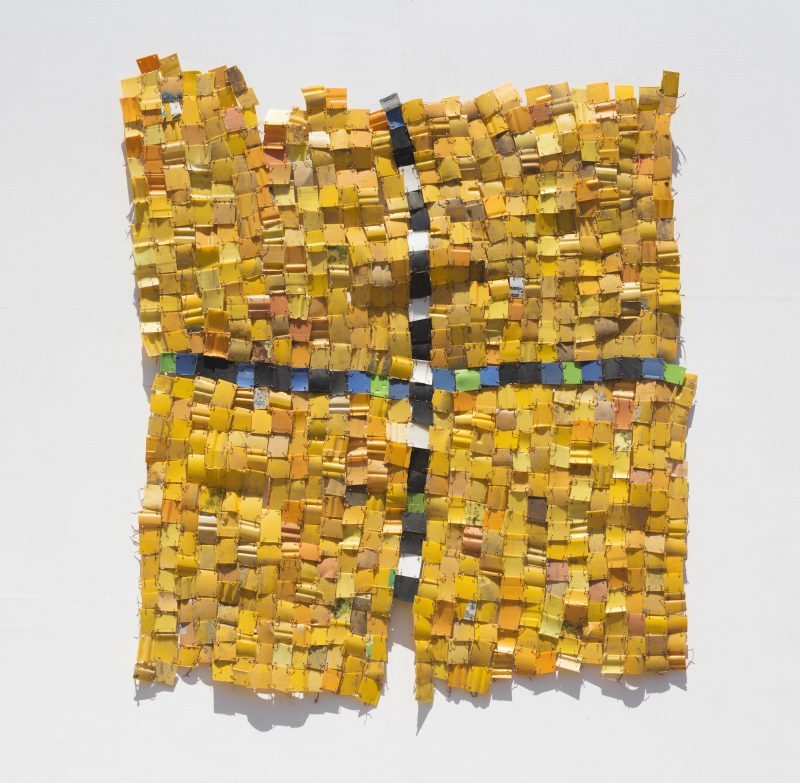
Constant iteration, 2018
Plastics, wires, and oil paint
59 x 51 inches (150 x 129.5 cm)
